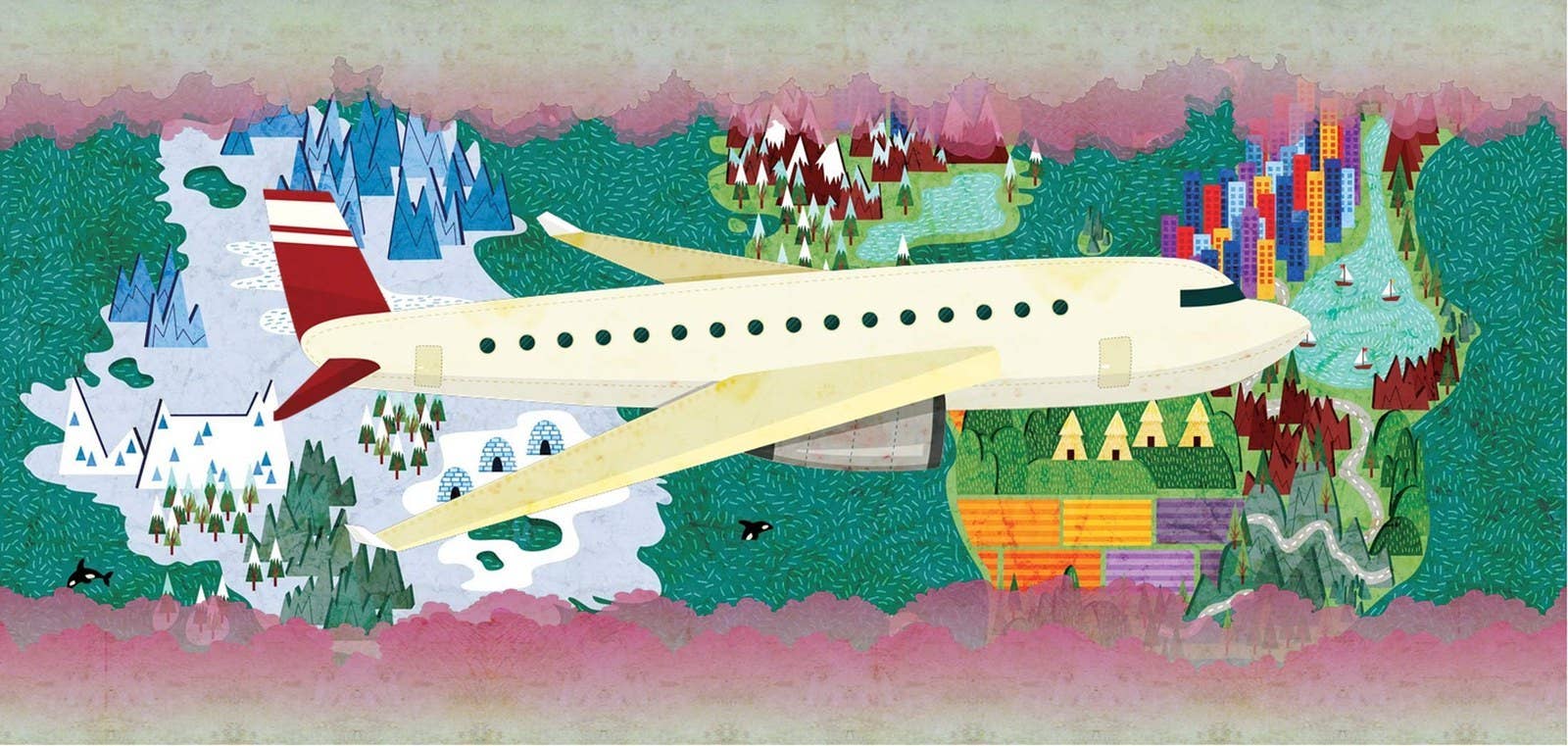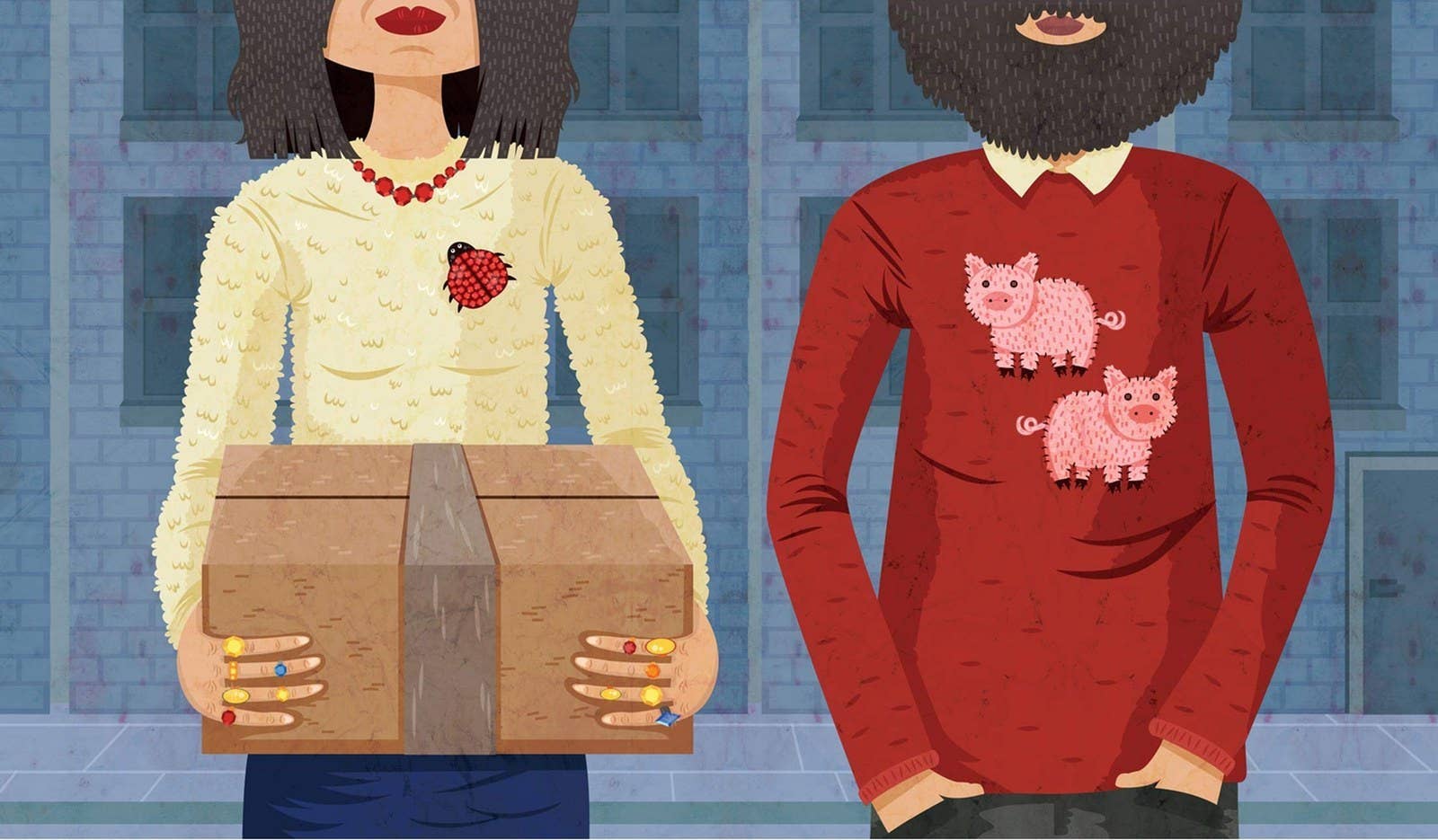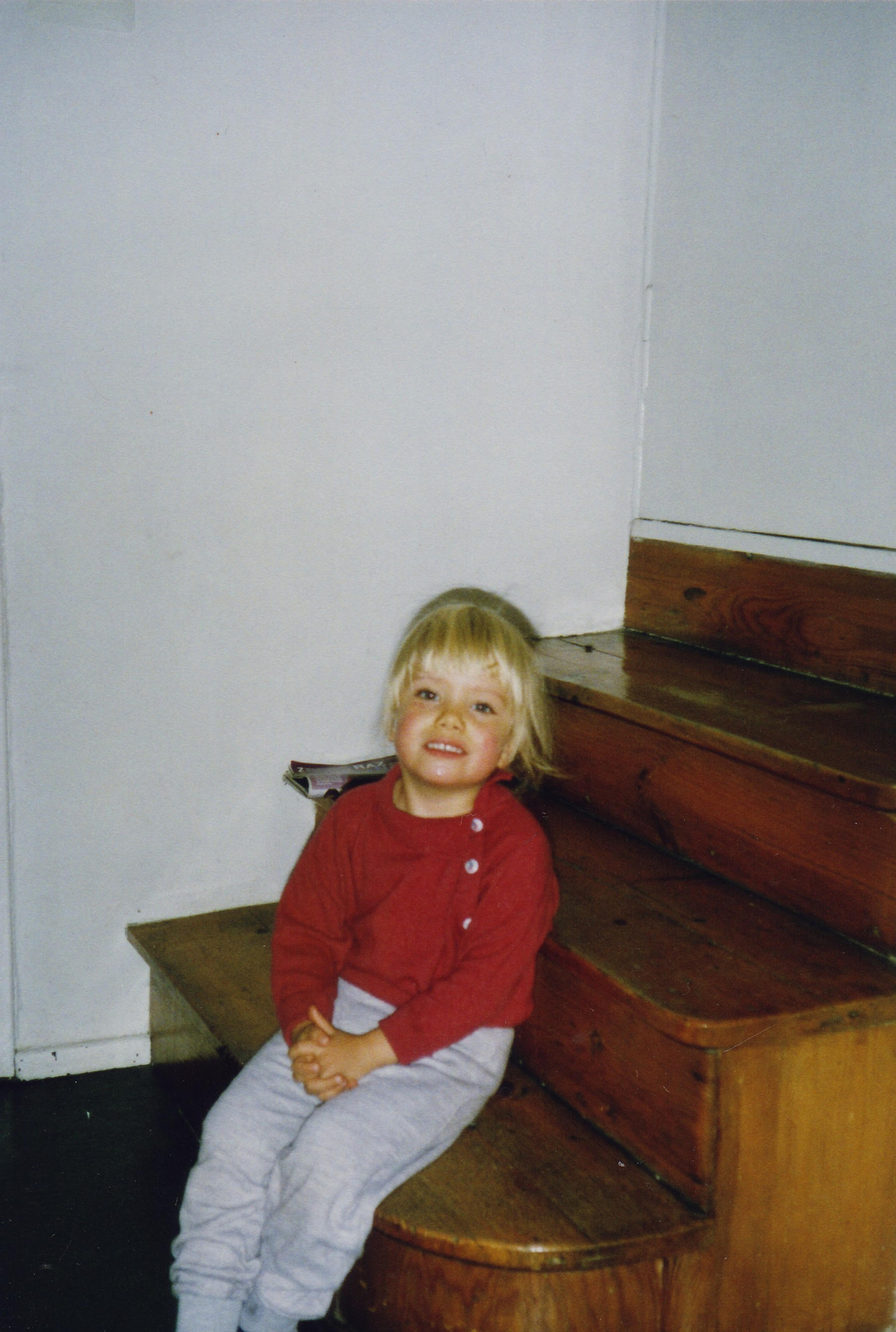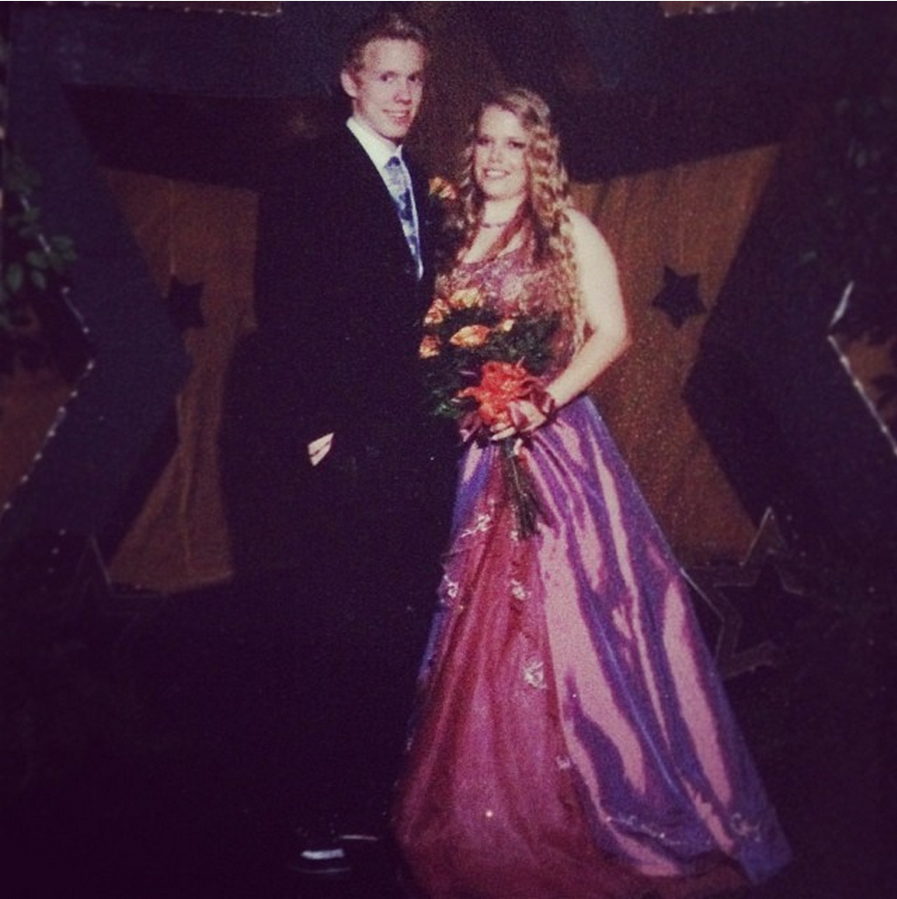
I have this vivid memory of a woman wearing dark-rimmed glasses and a chubby man with curly black hair. They came from Belgium twice a year to visit my family, bringing parcels of clothes, food, and toys. Inside, there would always be tons of black liquorice, some of which I’m sure still lives in our cupboards, and much-hated hand-me-down Barbie dolls. I still can’t stand the taste of black liquorice.
But far more intriguing than the parcels was the couple. They were so…different. She wore flashy jewellery: huge, gold rings on her fingers, and a big ladybug brooch with a lot of (probably fake) precious, shimmering stones. He always wore a jumper, even on warm days. One featured a couple of embroidered pigs, with soft, 3D tails fixed to their bottoms. I couldn’t look away. It was the most beautiful thing I’d ever seen. I am still, to this day, very covetous of that sweater.
In the post-Communist, newly democratic Poland of the early ’90s, such gestures of charity were common. Everyone who had the connections was trying to get a glimpse of the life out in the West – a great majority of the people for the first time in their lives. The couple, who worked for the Belgian Red Cross, were friends of my aunt’s. They always stayed for a couple of days; painfully awkward visits with a lot of uncomfortable silences and polite smiles that served as a substitute for words because no one in my family spoke English, Dutch, or French. I was the most stylish kid on the block thanks to them, though. So we said our thank-yous with simple gestures of affection and lots of homemade food.

Those visits were the beginning of a journey that would take me all over the world, the trigger of my transformation into a full-time immigrant years later. That couple’s peculiar looks, behaviour and language made me realise “The Outside” – and it was hypnotising. I needed to know more.
This fascination continued throughout my childhood. The only English-speaking TV I had access to was German MTV and I watched it religiously: US shows played in their original language with German subtitles flashing across the screen. I learned English mostly by watching The Real World, Pimp My Ride, and My Super Sweet Sixteen. My Britney Spears fascination, which had me translating lyrics from English to Polish, was also a significant stage of my linguistic education (as well as an important, early indicator of my sexuality, but that only became clear during my years at university).

At 14, I left my parents back in the motherland and moved to the small town of Ironton, Ohio. I still can’t comprehend how my parents let their only child fly cross an ocean to spend more than 18 months with a family of complete strangers. Looking back, I don’t remember being scared. If anything, I was ecstatic to finally be making my dreams come true.
The moment I left the safety of the airport, after hours of going through homeland security (“Do you have any radioactive materials with you, ma’am? Are you planning on using chemical weapons while in America?”), I quickly realised I knew nothing: It dawned on me that I didn’t really speak English, at least not as well as I had been led to believe by my middle school teachers. My understanding of the American lifestyle was based on teenage films and ‘90s MTV culture. The reality was far less exciting. Yet I felt like I was finally living in the country I should have been living in all my life.

The first time it hit me that it’s simply impossible to swap one culture for another came at Christmas. It’s a Polish Catholic tradition to break a piece of a wafer between family members at Christmas dinner and wish each other good health and happiness; my parents sent me a piece of wafer in the post so I could do the same, even though I was a continent away. I remember my new, American family sniggering as I semi-forced them to break the wafer with me. Eyes full of tears, feeling deeply misunderstood, I hated everything and everyone. I felt like America – where I felt so at home – was betraying me at this very important moment. But even the culture shock of those initial few months were minor compared to how at home I felt.
Upon my return to Poland I encountered another problem: The motherland I had been hoping to come back to was not the same one I’d left. People didn’t seem to have missed me much, and the places I had longed for while overseas looked different. The new identity I’d taken on and nurtured so carefully in the US was no longer valid. My new personality meant I was perceived as someone who was “too much” to stand, a show-off. A month into being back, the feeling of self-worth built up in Ohio was eroding fast. I became a shapeless persona, neither here nor there.

Reinstating my Polishness and recreating my friend circle was strange. I was trying to catch up with something and I didn’t really know what it was: I was not there to witness the change, so I didn’t know what I was chasing after. Learning how to belong – without losing my new confidence and identity – was hard. Emotional salvation came at my new state-owned school, where Polish teachers taught an English curriculum, centred around English-speaking cultures and ways of thinking.
With 75% of my class planning to study abroad, my wanderlust was reactivated – I decided to apply to universities in the UK. It was a fragile plan: moving across a continent with no definite source of income. If one thing didn’t work out, the whole house of cards would fall down.

Immersing myself in British culture wasn’t easy either. Yet again, I found I didn’t understand the Anglo-Saxon culture to the extent I imagined. Yet again I had to reinvent myself. It took me two years of university to understand how to function in British society: Queue. Always say "sorry". Avoid physical contact and hug others only on special occasions. Never talk about your feelings. Basically, don’t be so American. Simple, silly things my high school English handbook conveniently forgot to mention while covering British culture. Moving to the UK was the first time I had to deal with Polish stereotypes. The whole experience turned out to be very much like an argument one doesn’t necessarily wish to take part in, but has to. “You don’t look Polish.” “You don’t drink like a Pole.” “You actually speak English?” “You didn’t come here to work in a kitchen and/or construction site?”
After four years of living in the UK, I am embarrassed to admit I sort of see where some Brits are coming from. The British press has buzzed with the "influx" of (mostly low-skilled) Poles over the last five or so years. Stories like the one about a gang of Polish immigrants viciously beating and stealing from people pop up regularly online, shaping the image of my fellow nationals in Britons’ eyes. Many of the Poles I personally know refuse to integrate and stay in their little, Polish-speaking enclaves, doing nothing to change the stereotype. But perhaps it is not their job to do so. Over the years I've found myself trying to “prove” to others that I’m a good, hard-working person, not despite but because of where I’m from. I am lucky enough to never have met with open discrimination but I know there are many to whom the hand of friendship and acceptance has not been offered.

It’s almost 20 years since I had the pleasure of witnessing the most striking fashion piece of the century: the pig jumper. Last month, I celebrated my sixth anniversary of living abroad. I have spent a quarter of my life living in foreign countries. Of course, it is important to note my way of life is a choice: I did this because I wanted to. Unlike so many of the world's population living away from where they were born, I decided to move, and with relative ease was able to. The images of refugees (many from Syria, but also from all over the world) trying to get on with life in Europe are all over the news. They will all have to go through cultural assimilation once they settle, simply to survive. For them, new customs, traditions, languages will not be a part of an "interesting" cultural experience. All these little things they will have to change about themselves will serve as yet another reminder they are not here because they want to but because they have to.
More than ever, I wonder: Does being an immigrant mean, in a way, never being comfortable again for the rest of your life? Always feeling like you need to prove yourself, to show that you’re just as good as the citizens in the country of your current residence? Does it mean a constant reinvention of oneself?
Now I know the suspension between cultures once you leave your home country is irreversible. You become a citizen of the world, but also never fully belong anywhere any more. I wouldn’t change any of my decisions. I am who I am because of the choices I’ve made, and the people I’ve met. I’ve seen – and continue to see – the world in a way my parents, for so long trapped behind the Iron Curtain, never dreamed of. My life as a constant immigrant, impermanence included, has left me thankful.
